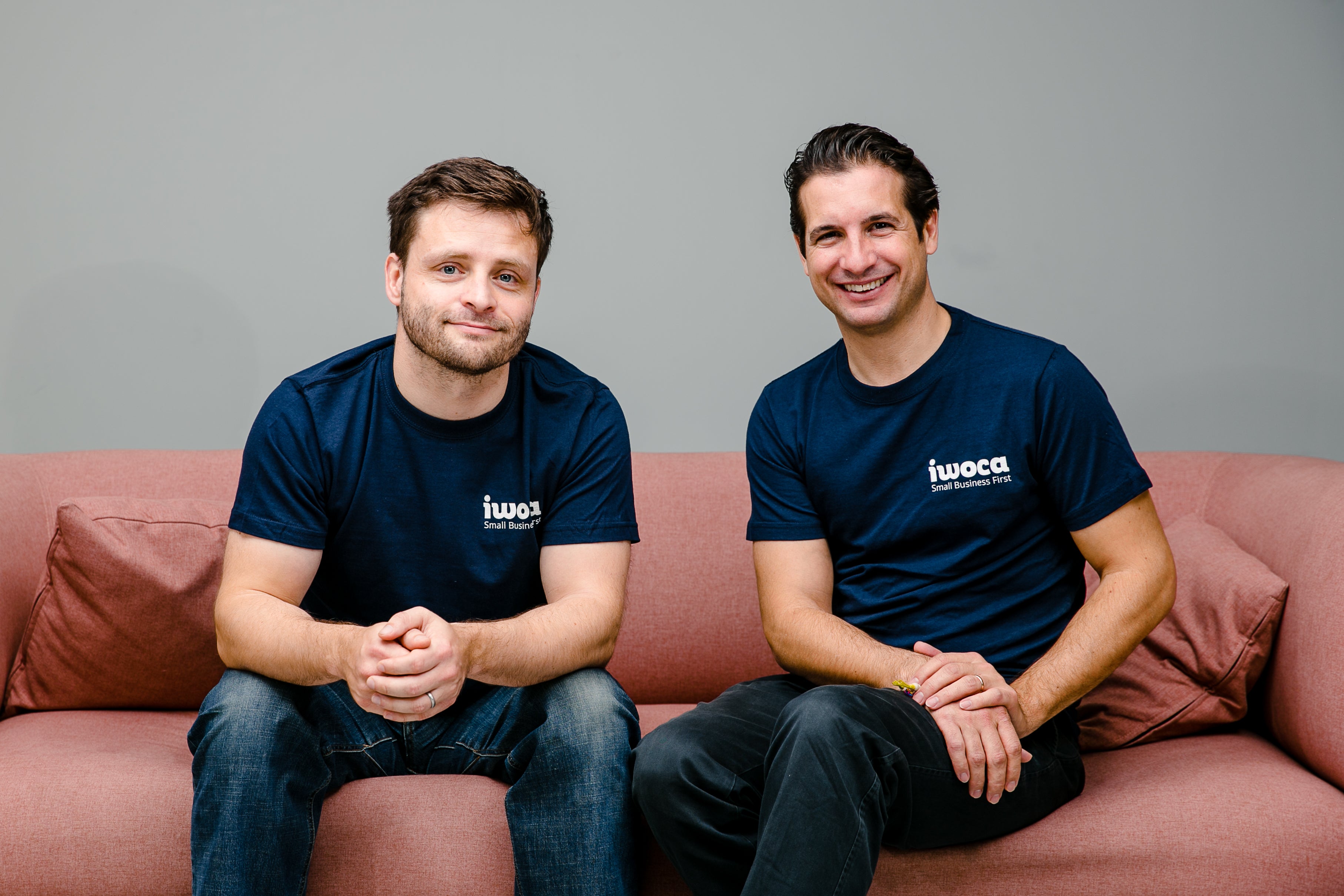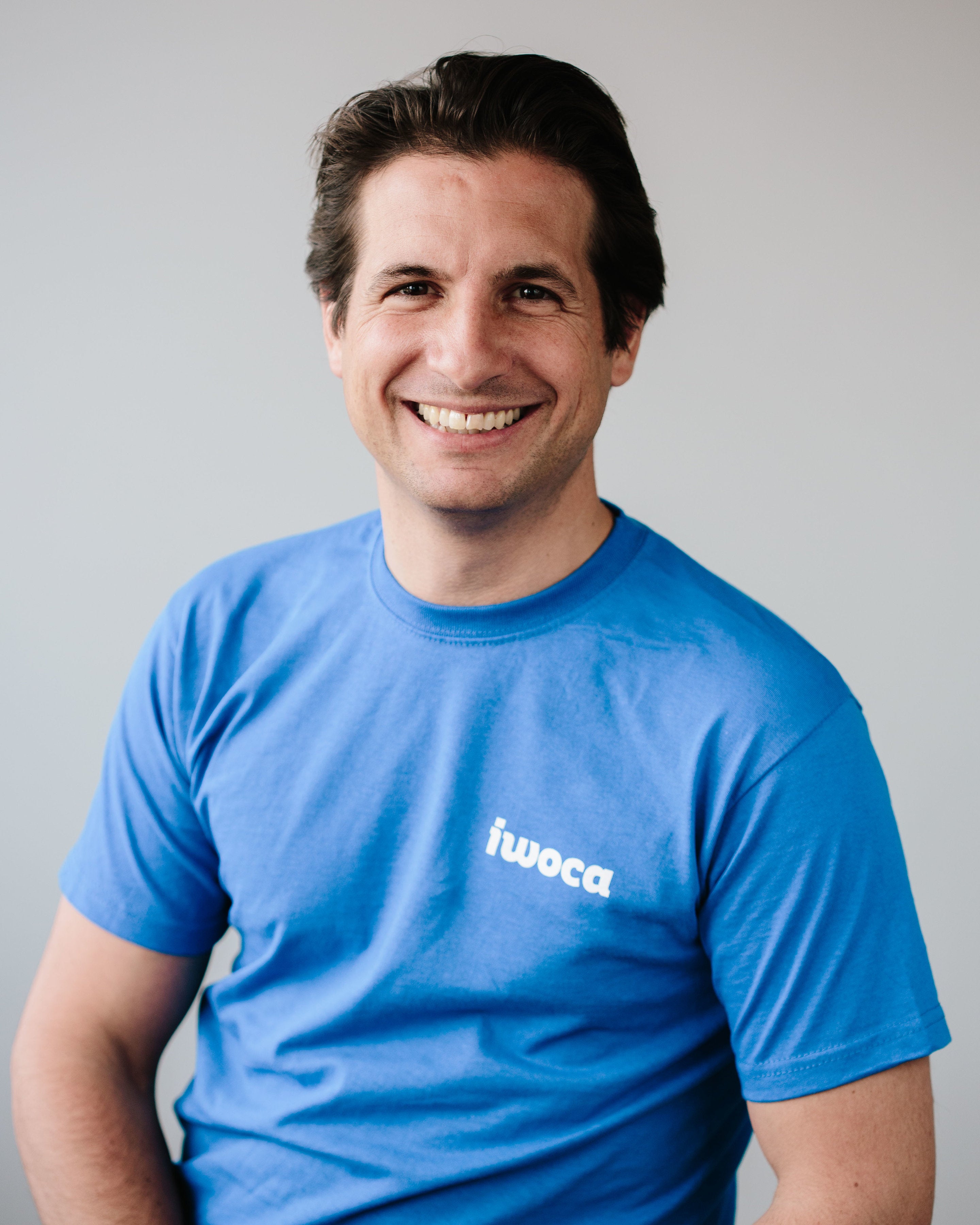iwoca – fast loans for small businesses in the 21st century
Going to your bank for a loan is history – iwoca is disrupting the way small businesses access money, making it faster and easier and supporting their mental health in this tough time, writes Sean Russell


So you want a loan to help expand your business. What are your first steps? You go to your bank with the relevant information compiled by yourself or your accountant; you submit your application; and you wait, and wait, and wait. All that time is gone, all those chances to reap the rewards of expansion are wasted. In a data-driven internet age, is that really acceptable? iwoca thinks not.
“I was somewhat frustrated by the small impact I could have on the world,” says Christoph Rieche, CEO and co-founder of iwoca, “so I started iwoca, really out of the ambition to see much more impact from my work.”
Rieche, who is originally from Germany, had the idea for iwoca when he realised he wanted to do something with fintech. He knew he wanted to help small businesses, but coming from a big trading floor at Goldman Sachs he had little understanding of tech and start-ups, so he went looking for a co-founder, which he found in James Dear.
“I’d been stalking James digitally,” says Rieche. “He was a quantitative trader, and – long story short – I came across a fintech meet-up and James posted that he’d be going there. He has a PhD in theoretical physics and has been coding since age eight, and I thought that was a good fit, so I turned up at this pub. Then began our big adventure, going deep outside of our comfort zones.”
And so began their partnership. In 2011, iwoca was launched, the same year Rieche had his first child. The idea is simple; the technology underpinning it is not.
Read More:
If a small-business owner wants to apply for a loan through iwoca, they go onto the website, or through one of iwoca’s partners, request an amount between £1,000 and £200,000 over 12 months, and receive a decision within one working day. It’s even quicker if you apply through the company’s embedded accounting software partners such as Xero – the quickest time from starting an application to money in the bank was just three minutes 26 seconds with partners Tide.
“You can only get this if you have really automated every single process as part of the journey which banks might still take two months [to complete],” says Rieche. “You’re not really going to a bank any more if you’re looking for a loan; that’s so 80s, it’s history. Today, with us, you get financing at the point where you actually spend time as a business/business owner, and that is your bookkeeping software, for example.”
While you can go through iwoca’s website directly, when you go through one of iwoca’s partners instead, most of the information iwoca needs is provided by the partner, which means you need to give them even less. In most cases iwoca can make a decision on this basis alone. After all, your bookkeeping software knows more about your business than your bank account does. This is one of the aspects where iwoca is using embedded finance to disrupt traditional loans.
It’s been a crazy journey, but I’m really quite upbeat. I think lots of business owners kept on being resilient and are now seeing opportunities to steam on
Rieche uses the analogy of buying a smart phone. If you want to buy an expensive smart phone, for example, you don’t go to your bank and ask for a loan; more likely you will sign a contract paying monthly for the new phone and package. You are essentially taking a loan, but it doesn’t feel like it. That’s how iwoca wants business loans to feel, and is the direction in which embedded finance is heading. Instead of you going to the bank, iwoca comes to you – through your bookkeeping app, or one of its many other partners.
With this system, iwoca has reached 1.3 million businesses across the UK and Germany, and made finance available to over 50,000 customers, providing more than £2bn. The company is aiming to disrupt the traditional loan system, to turn people away from traditional banks, and to make the whole process smoother and easier for businesses.
This has perhaps never been more important than right now, as the government’s financial support dries up and businesses seek to open up, adapt, or even expand. When lockdown began and the government business support schemes went live, iwoca, like much of the world, went on a rollercoaster ride.
“Our customers had access to government funding with terms that the private sector is simply unable to compete with,” says Rieche. “We could never offer [similar terms to] the bounce back loan scheme, for example. That meant that the 1.5 million businesses that have borrowed under that scheme didn’t have a huge incentive to come to any other lender, and that meant the demand for our product dropped.”
But they soon realised iwoca could serve the slightly larger businesses via the CBILS (coronavirus business interruption loan scheme), and this it has done very successfully. Through CBILS, iwoca has loaned over £300m (approving around 10 per cent of market share, including the big banks) to help businesses through the coronavirus pandemic, and will continue to provide this assistance until the scheme ends. By then, its core market – the smaller businesses; the coffee shops, the barbers, the electricians – who perhaps didn’t need iwoca during the pandemic, will once again be needing help.
“Some of these businesses may be looking for some additional funding to seize an opportunity,” says Rieche, “to buy inventory or make a small investment, for example. So the government money helped them through the crisis from a cashflow perspective, but now they want to make an investment to grow their business, and they need some funding on top of that, and so we’re seeing demand for that emerging, which is really great, really good green shoots.”

But it’s not just financially that iwoca is supporting businesses. The company has recently partnered with Mental Health UK to offer support products to small businesses, providing practical tools, support networks and trained mental health specialists.
Research carried out on 984 small and medium-sized enterprises (SMEs) showed that 80 per cent of owners have experienced symptoms of poor mental health. This increases in women owners to 86 per cent. This has only been made more acute during the pandemic.
Owning a business is stressful in normal times: sales peak and trough, and so does the money. As coronavirus has shown, no one can predict what is about to happen, and when money and livelihood are on the line it is no wonder that small-business owners suffer. Not only that, but 44 per cent of those responding said they had never accessed help for their mental health.
“Mental health is key,” says Rieche, “that’s really something we’ve added to our company’s priorities to make a difference, which is why we partnered up with Mental Health UK, and why we’ve funded some research, and we are now working with them to design a specific small-business mental health support platform. So that’s where we’re really investing our own resources and people, and also with agency support. I think it’s really important, and I haven’t really seen anyone stepping in; it’s a completely overlooked segment.”
But it’s not just mental health. iwoca is aiming to help with the “levelling up” of the UK, with around 80 per cent of its customers coming from outside London, and last year the company pledged £220m to small businesses in the north by the end of 2023 to help them recover from the Covid-19 crisis. On top of that, iwoca has launched a new support initiative for women business owners in Yorkshire, as local data suggests female workers in the region have been more affected by the pandemic than those in many other parts of the UK.
Read More:
iwoca doesn’t only offer loans to their customers either, Rieche says he can get lost down a hole, wanting to tailor and provide everything he can to address their specific needs and requirements. iwocaPay is one such product, making invoicing easier for the buyer and the seller. If you invoice your buyer with iwocaPay with a 90-day pay term, iwoca will pay you immediately and set up a payment plan with the buyer, removing the waiting time between your invoicing and receiving the money in the bank. Just another way to help smaller businesses.
“There are lots of green shoots we are now starting to see,” says Rieche about the end of lockdown, “just in time for spring, with daffodils starting to grow around us. It feels good to be where we are now, one year on. It’s been a crazy journey, but I’m really quite upbeat. I think lots of business owners kept on being resilient and are now seeing opportunities to steam on, and that includes the hospitality sector – they’ll see a huge amount of demand, with the need for people to do something else other than cooking at home.”
Join our commenting forum
Join thought-provoking conversations, follow other Independent readers and see their replies
Comments